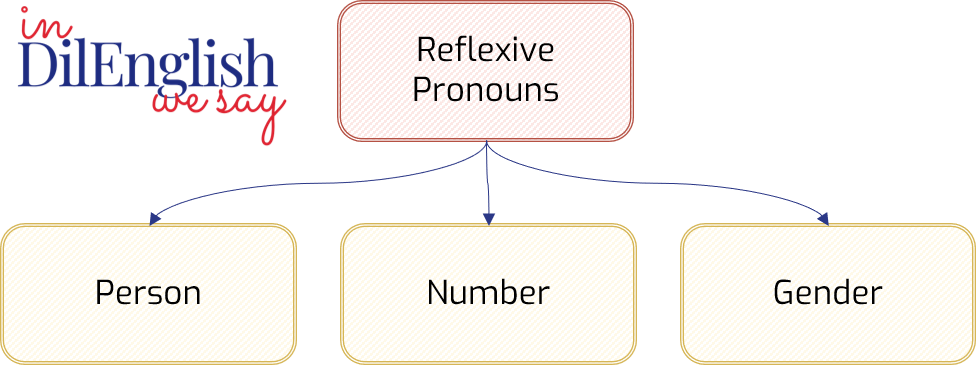Reflexive pronouns are used to emphasize another noun or pronoun.
Reflexive pronouns have the categories of person, number, and gender in the third person singular.

Reflexive pronouns have the categories of person, number, and gender in the third person singular.
| 1st person | 2nd person | 3rd person | |
| Singular | myself | yourself [1] | himself, herself, itself |
| Plural | ourselves | yourselves | themselves |
Function
Reflexive pronouns refer to the subject of the sentence in which they are used, indicating that the action performed by the doer passes back to him or is associated with him.
In the sentence, they are usually used as direct objects.
In that moment of emotion, he betrayed the Forsyte in him — forgot himself, his interests, his property — was capable of almost anything… (Galsworthy) (OBJECT)
Reflexive pronouns may be used as predicative.
When she came back, she was herself again. (Hardy) (PREDICATIVE)
Reflexive pronouns preceded by a preposition may be used as indirect prepositional objects, as attributes, and as adverbial modifiers.
He could not see that it would be better to make her feel that she was competing with herself…(Dreiser) (PREPOSITIONAL INDIRECT OBJECT)
“I fancied you looked a little downcast when you came in,” she ventured to observe, anxious to keep away from the subject of herself. (Hardy) (ATTRIBUTE)
If June did not like this, she could have an allowance and live by herself. (Galsworthy) (ADVERBIAL MODIFIER OF MANNER)
Reflexive pronouns may be used to form the reflexive voice (in this case reflexive pronouns are structural words):
Undressing again, she washed herself intensively… (Galsworthy)
And then I dressed myself and came away to find you. (Hardy)
Sometimes reflexive pronouns are used emphatically:
Moreover, Soames himself disliked the thought of that. (Galsworthy)
She was never idle, it seemed to him, and he envied her now that he himself was idle nearly all his time. (Galsworthy)
[1] The archaic pronoun of the second person singular is thyself.
